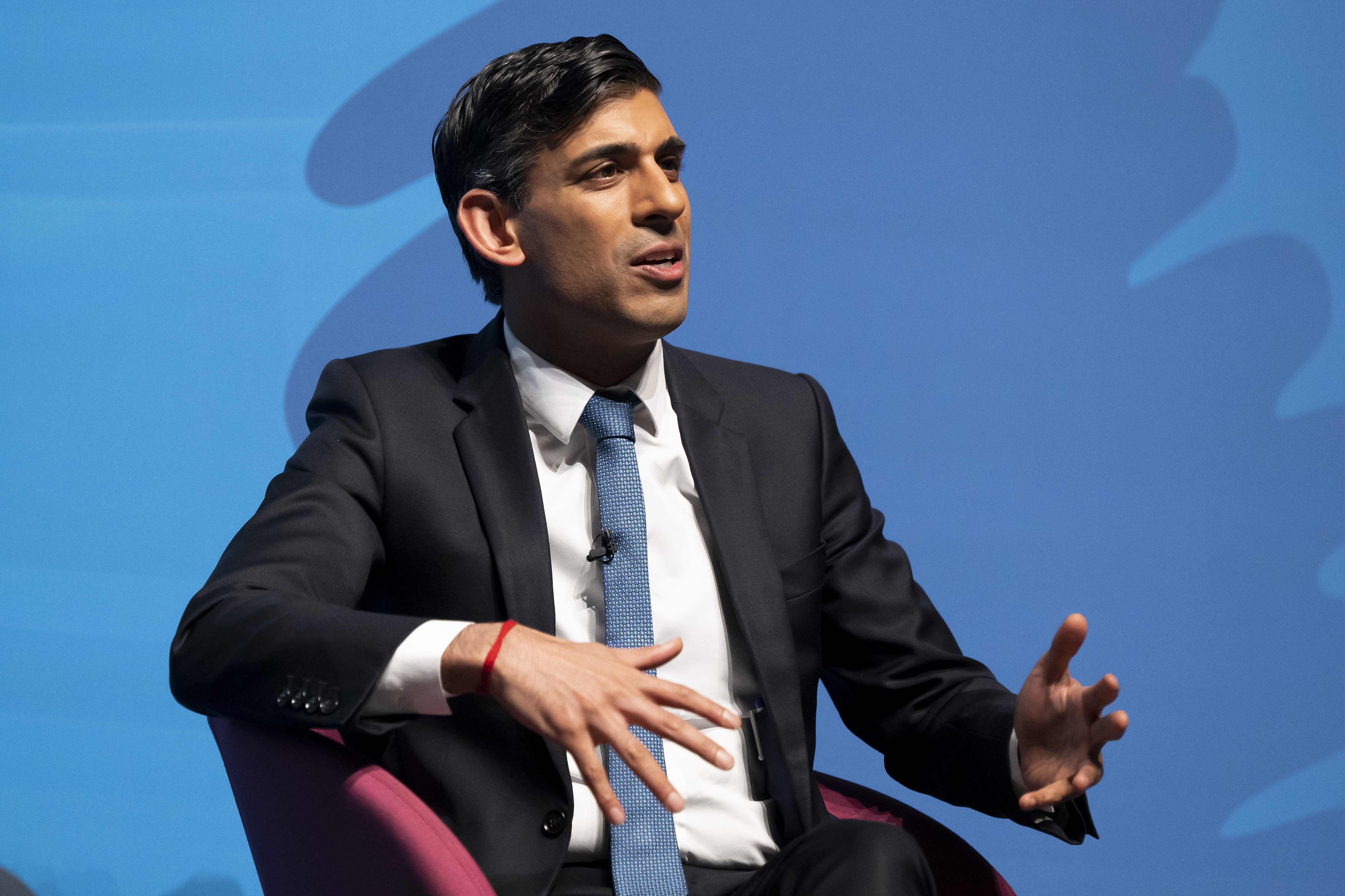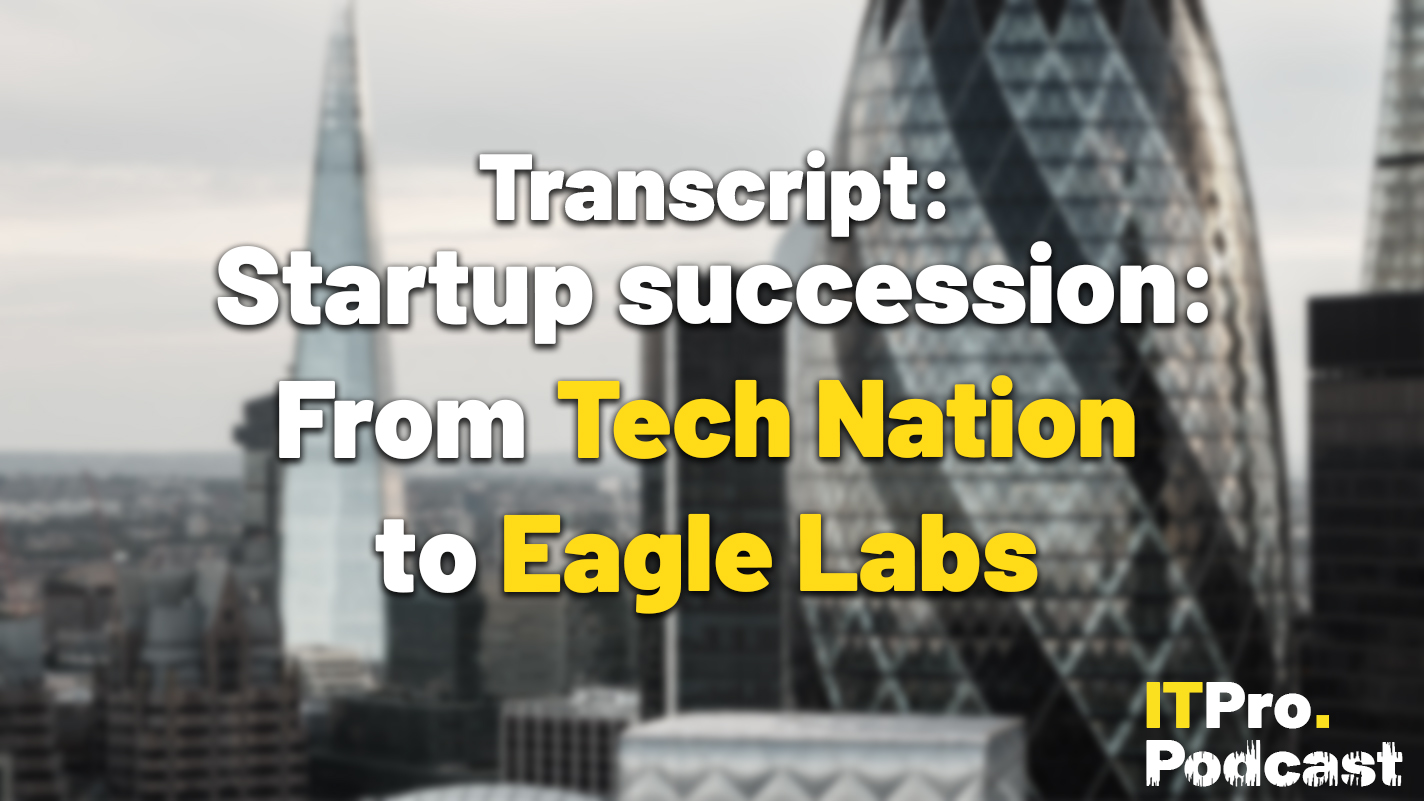How fintech can turn your small business into an enterprise
Fintech has knocked digital finance into second gear and left traditional players looking out of date

You've developed your idea, secured funding and finally launched your startup. Now you need to triage your venture and consider which tools will help you grow beyond a rented desk.
Chief among them will be how you process, track and chase payments. This used to mean a weekly trip to the bank, but now fintech the technology of storing and moving money has knocked digital finance into second gear, and left the traditional players looking unwieldy and out of date.
Fintech in the cloud
"The cloud is fundamental to the changing economic model," according to Chris Wade, VP of product for UK accounting software firm Sage. "It makes success more attainable to more businesses and gives them the freedom to try something at relatively low cost. If it doesn't work for them, they can change."
Sage has been transitioning its products from local apps to cloud-based ones for some time. Requiring no capital outlay or investment in hardware and training, Wade believes this shift removes the imperative to persevere with a platform that doesn't suit or grow with your business.
"The cloud lets you make better choices about which technology works for your business. The whole collaborative, remote working experience applies in both management and delivery now, so if you've got a solution designed with that in mind, it'll support you in ways a desktop [application] with an embedded workflow won't."
But accounting in the cloud does more than track your expenses. APIs open your books to a new generation of fintech tools, bringing to startups the kind of facilities that were once the preserve of the minted multinational.
Disruptors like Stripe integrate with Xero and other accounting apps so that solo and micro-businesses can now accept card payments. Yodlee is bridging the gap between banks and their customers, downloading business transactions and streaming them into cloud-enabled bookkeeping tools. FreeAgent will even reconcile the results subject to your approval based on the invoices you've sent, bills you've received, and what it's learnt about how you run your business.
"These flows would historically have been on paper," says Wade, "but no cloud is an island now, and no element of the workflow has to be solved exclusively by one vendor. That means you can make decisions based on what your bank account contains, not what your mistyped accounts suggest."
Banking across borders
Sooner or later, a growing business will need to consider foreign exchange. Whether you're buying supplies from China or selling goods to Europe, you'll quickly discover the cost of doing business through a regular bank.
Why? "[While] the world is now very global, the financial system hasn't caught up," says Stuart Gregory, head of business for TransferWise. "It's still pinned down to single countries with old, clunky ways of doing things. I don't think that meets anyone's expectations of what an online banking service should be."
TransferWise saw this as an opportunity. With funding from an accelerator, it set up a cross-border transfer service, charging low fees and using standard inter-bank rates for every transaction. Seven years on, TransferWise now offers a borderless business bank account that simultaneously holds 28 currencies. With native IBAN codes for the UK, US, Europe and Australia, it lets customers pay in and out as though they were locals in 60 different countries.
"We've been focused on solving a specific customer problem, rather than seeing it as an opportunity for margin, which is perhaps where a lot of banks [have been focused]," Gregory continues. "Everyone travels, phones and works across Europe. This is a wake-up call. Banks need to respond to changes in the market and changes in expectations."
Regulated by the FCA on a licence that covers the whole of Europe, TransferWise is moving more than $2 billion a month and, at 15%, its share of the UK market for cross-border transfers is closing fast on the largest traditional banks.
Its offering lacks some of the features you'd expect of a regular bank account, such as direct debits and a debit card, but these gaps are plugged elsewhere. Revolut, which handles both international and crypto currencies, offers personal and business borderless accounts linked to prepaid cards. Monzo goes further, with debit cards and direct debits, but as it offers only one account type, it may appeal more to the freelancer or sole trader.
Do I need an office?
If you're happy with virtual banking, you probably don't need an office, either.
Slack, Trello, VoIP and web apps mean there's little you can't do remotely even if you have colleagues. Hire a distributed workforce and you're free to choose the best person for each job, regardless of where they live. They'll be easier to recruit if they don't need to relocate, and you might save on salaries, attracting higher-calibre candidates who are happy to offset potential earnings against the freedom of working from home.
You can still have a central number on your email footer, though. Answering services such as Lincolnshire-based Miss Moneypenny will pick up a virtual number using your company name and redirect enquiries to whoever is most appropriate. On the rare occasion you need to host team meetings, office-rental services such as Regus lease space for an hour at a time.
Scaling your IT investment
Reducing your capital outlay at the start lets you redirect your limited funds into marketing and hiring staff, so leasing hardware rather than buying makes immediate sense. You'll preserve as much of your startup capital as you can, and in doing so, sustain your operation through the lean early months.
Birmingham-based Geex offers a standard three-year business hardware leasing option, at the end of which businesses can either buy the leased equipment, or upgrade. It also offers shorter-term leases but, says director Steve Khela, "anything less than two years and the numbers don't really add up".
Leases are typically only available to credit-worthy businesses, but Geex will loan to startups if the directors sign personal guarantees. With the era of quantitative easing at an end, and central banks increasing rates to counter inflation, leasing will lock in potential savings, as the repayments won't go up in sync with the base rate. There are tax benefits, too, as the repayment can be offset against corporation tax.
Smarter money management is vital in the launch phase of any new venture, whether it's through leasing, or leveraging fintech to reduce your exposure to fees and commission. While your ambition may be unlimited, your funds aren't, and every penny held back as well as each minute saved through automation will help your business along the road to becoming a fully fledged enterprise.
Sooner or later, a growing business will need to consider foreign exchange. Whether you're buying supplies from China or selling goods to Europe, you'll quickly discover the cost of doing business through a regular bank.
Get the ITPro daily newsletter
Sign up today and you will receive a free copy of our Future Focus 2025 report - the leading guidance on AI, cybersecurity and other IT challenges as per 700+ senior executives
Nik Rawlinson is a journalist with over 20 years of experience writing for and editing some of the UK’s biggest technology magazines. He spent seven years as editor of MacUser magazine and has written for titles as diverse as Good Housekeeping, Men's Fitness, and PC Pro.
Over the years Nik has written numerous reviews and guides for ITPro, particularly on Linux distros, Windows, and other operating systems. His expertise also includes best practices for cloud apps, communications systems, and migrating between software and services.
-
 Is Rishi Sunak’s ‘Unicorn Kingdom’ a reachable goal or a mere pipedream?
Is Rishi Sunak’s ‘Unicorn Kingdom’ a reachable goal or a mere pipedream?Analysis Plunging venture capital investment and warnings over high-growth company support raise doubts over the ‘Unicorn Kingdom’ ambition
By Ross Kelly
-
 Some Tech Nation programs could continue after Founders Forum acquisition
Some Tech Nation programs could continue after Founders Forum acquisitionNews The acquisition brings to a close a months-long saga over what the future holds for Tech Nation initiatives
By Ross Kelly
-
 How to choose an HR system
How to choose an HR systemWhitepaper What IT leaders need to know
By ITPro
-
 Podcast transcript: Startup succession: From Tech Nation to Eagle Labs
Podcast transcript: Startup succession: From Tech Nation to Eagle LabsIT Pro Podcast Read the full transcript for this episode of the ITPro Podcast
By Rory Bathgate
-
 The ITPro Podcast: Startup succession: From Tech Nation to Eagle Labs
The ITPro Podcast: Startup succession: From Tech Nation to Eagle LabsITPro Podcast Some small firms are already lamenting the loss of Tech Nation, but Barclays Eagle Labs has much to offer the sector
By Rory Bathgate
-
 Don’t count Barclays Eagle Labs out just yet – it can deliver in ways Tech Nation never has
Don’t count Barclays Eagle Labs out just yet – it can deliver in ways Tech Nation never hasOpinion Tech Nation has a great track record, but Eagle Labs has the experience, the financial clout, and a clear-cut vision that will deliver positive results for UK tech
By Ross Kelly
-
 UK tech sector could face a ‘unicorn winter’ amid spiralling economic conditions
UK tech sector could face a ‘unicorn winter’ amid spiralling economic conditionsNews Tech Nation’s final piece of industry research calls for action to support continued ecosystem growth
By Ross Kelly
-
 "It's still not great": Industry divided on government's SMB tax relief package
"It's still not great": Industry divided on government's SMB tax relief packageNews The government’s handling of R&D tax credits has left SMBs with a “sense of disbelief”
By Ross Kelly

